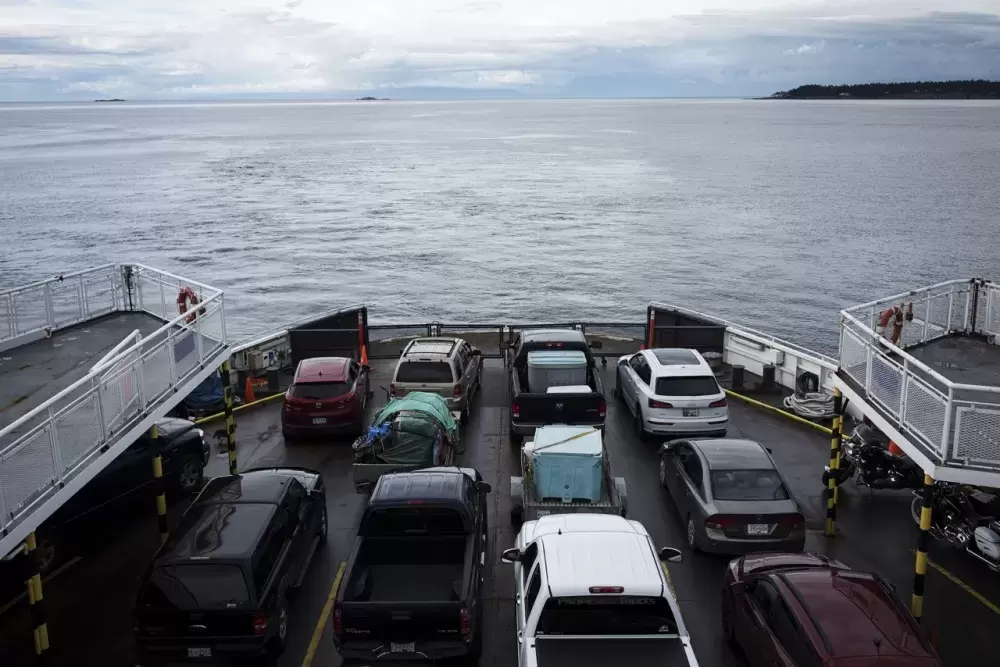In a move to salvage its economy from the COVID-19 lockdown, the province is encouraging travel within the province this summer – a message that goes against the urging of multiple Indigenous leaders.
On June 24 Premier John Horgan announced that B.C. has begun the next phase of its plan to reopen the economy. Moving into Phase 3 entails guidelines for hotels, resorts and movie theatres to reopen for business while following social distancing protocol to control the spread of coronavirus infection.
“As we carefully turn up the dial on our activity, we can now look to travel safely around the province,” announced Horgan. “But as we hit the open roads this summer, we must remember we are not leaving COVID-19 behind, and we need to continue to do our part to bend the curve and protect the progress we’ve made.”
The most recent numbers announced on June 29 show 26 new cases in B.C. discovered over the previous three days, for a total of 2,904 infections since January. After a peak of almost 800 active cases in late April, this has declined to the low of 153 tracked on June 29, including 18 who are in hospital.
First Nations people comprise 86 – or less than three per cent - of B.C.’s total infections tracked since January, according to data recently released by the First Nations Health Authority. Nineteen for those with the virus have been hospitalized, although none of these Indigenous patients remain in a medical facility. Three have died with COVID-19.
With higher numbers in neighbouring Alberta and nearly ten times the count of infections south of the border in Washington State, British Columbia has emerged as a North American leader in its response this year to the coronavirus pandemic. But a growing number of Indigenous leaders are expressing concern that not enough is currently being done to protect their people this summer as outsiders venture to summer destinations.
On June 19 the Tseshaht First Nation sent a letter to Prime Minister Justin Trudeau urging the government not to reopen the Pacific Rim National Park Reserve to visitors. This area includes the Broken Group Islands, part of the Tseshaht’s traditional territory and site of tribal origin.
The letter states that the Broken Group normally sees 13,000 or more tourists annually.
“We are advised that Parks Canada intends to reopen the Broken Group Islands to visitors, campers and tourists within the next couple of weeks,” wrote Chief Councillor Cynthia Dick, stressing that her nation strongly opposes allowing tourists into the Broken Group. “We believe that the reopening of the Broken Group Islands part of the Pacific Rim Park Reserve will expose our children, members and staff to possible infection from COVID-19. There is no urgent reason to reopen the BGI to tourists. Our people have remained COVID-19-free and now our efforts will be for naught.”
After more than a month without a new case, an infection was confirmed on Vancouver Island June 22. This shows that the region isn’t ready to be opening up at the province’s current pace, said NTC President Judith Sayers, who remains concerned about the risk of infection entering Nuu-chah-nulth territory.
“If we had achieved no more cases for a few weeks, we could be moving into phase 3. But we aren’t,” she said. “[Nuu-chah-nulth] nations will be making their own decisions on how to protect their members and opening areas as they see fit.”
This necessary protection includes four areas of concern that Sayers said the province has yet to address. Adequate information sharing on new cases, screening of non-resident for infection, the availability of rapid testing for Indigenous communities and local contact tracing teams to keep First Nations safe are still needed. These requirements from the NTC were further supported by the Heiltsuk and Tsilhqot’in in a joint statement made on June 24.
“The premier cannot forget our free, prior and informed consent over our territories, and that we have not given our consent to open up the province,” said Sayers in the joint statement. “We will do what we need to in order to protect our people, and if there is an impasse, we need to talk. For us, it is people before economics.”
For the time being, Ottawa has closed the USA border to non-essential travel until July 21, and Canadians returning from outside the country are legally required to quarantine for 14 days. But travel into B.C. from other parts of Canada remains open.
During a press conference she held with Horgan on June 24, Provincial Health Officer Dr. Bonny Henry said travel into B.C. from other provinces will continue.
“I don’t see us ever putting in restrictions,” she said, noting that “travel manners” will still be expected from non-B.C. residents, such as maintaining a six-foot distance from others, regular hand washing and ensuring a community can welcome them before they arrive. “We need to have social interaction. We need to have our economic engines going.”
As it stands now, all of BC Ferries’ routes to and from Vancouver Island have reopened, and the province has seen over 100,000 reservations for campsites. Three months after a provincial state of emergency was declared, the province states that B.C.’s rate of COVID-19 infection has flattened.
“If you’re coming to British Columbia, be mindful of what British Columbians have done together,” said Horgan.







